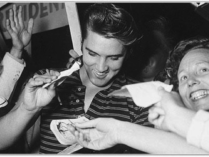THE PERSUASIVE WORD
THE POWERFUL VOICE
February 17, 2019
Early this year I conducted two workshops and three coaching programs in California. Amongst other things it was a week of working with poorly used voices. The voice weaknesses I found there though are found anywhere in the world.
“I’m never taken seriously,” “I don’t know why people never listen to me,” “I must improve with my public speaking or I could miss out on this important promotion,” “I’m worried about my accent – I’m worried others can’t understand me” were amongst the things people told me. I heard this feedback and a lot more at the beginning of my work with all these people and it has inspired this blog post.
A powerful voice is linked to audience perceptions of confidence, authority, persuasiveness, and the impression that this speaker is influential and therefore, someone worth paying attention to. It is very important to develop a powerful voice if you want to be taken seriously. Many women in particular are not taken seriously because they do not speak with powerful voices. Additionally, females generally have a fairly high tone of voice. Therefore, it is more difficult for women than men to make the right impression on corporate audiences.

Kristin Linklater in her book ‘Freeing the Natural Voice’ says we have a natural voice that is closely linked to our emotions.
However, this natural voice is slowly replaced with an inexpressive voice because that’s what society demands.The baby yells emotionally. The baby learns that vocally expressing a need leads to satisfaction and contentment. The baby also depends on vocalization for survival.
Therefore, for the baby, the process of making sound begins with the hunger pang. Emotion kicks in because the baby demands satisfaction. The baby draws in a deep breath and releases the voice – often not a pleasant sound to the ears of adults.
Similarly, the young child wants potato crisps. The emotion kicks in – he really wants some potato crisps. He feels the pang. And he’s emotional about wanting the crisps. He expresses the need by screaming to mum or dad and is not rewarded. He is told “no” because screaming is not a polite way to ask.
Next time the child approaches the parent with the same pang. But the expression of the need must be rerouted through the intellect…IN ORDER TO GET WHAT HE WANTS. The emotions are suppressed and the voice changes. The process is now PANG > BRAIN > VOICE.
What happens to the breath? It is controlled and often suppressed. We lose the right to breathe. We lose the right to be physically unashamed to fully vocalize…to release a word into space, so to speak.
How did we lose this right to speak? The positive answer is that we become socialized. After all, it simply wouldn’t be a very nice world if we all went around fully vocalizing! The negative answer is that the process of socialization teaches us that as soon as we speak, we are judged.
I have noticed in England the boys who attend the famous Eton College possess a strong confidence to speak. This is not surprising because the College possesses a strong culture of valuing communication. However, this is not the norm for most educational institutions. The lack of confidence and unwillingness to speak by many school kids means they will have difficulties with public speaking when they join the workforce.
We resist the right to speak because we are afraid of somehow getting it wrong and facing rejection as a result. We learn to become dependent on the approval of others. We become self-conscious about our voice and how we use it.This affects our willingness and ability to speak in public.
Lynda Jackson fixes voices all the time. She teaches you to not only find your authentic voice; she also helps you develop a strong public speaking voice. It’s not surprising the feedback she received at the end of last week’s workshops included things like “this is a life-changing experience.”
OTHER RECENT ARTICLES




